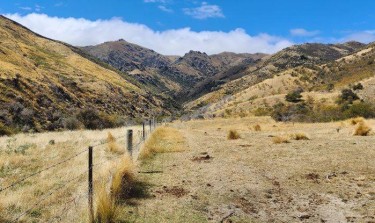Quick Takes of the Week to April 11
In case you missed it: News bites for the week.
In case you missed it: News bites for the week.

Paul Newfield.
Paul Newfield, chief executive of Infratil’s management company Morrison, has disclosed the on-market purchase of $2 million of Infratil shares.
According to the NZX filing, Newfield’s company Pekara Pty Ltd, trustee for the Podgora Trust, bought 200,070 shares between March 31 and April 4 at prices ranging from $9.76 to $10.25 a share.
The acquisitions took his holding to 1,771,993 shares, a stake worth $17.3m at current prices.
In early March, Newfield bought 279,482 shares for $2.7m at an average $9.74 a share.
The Reserve Bank is widely expected to cut the official cash rate by 25 basis points on Wednesday, but a slim minority think it is appropriate to hold.
The NZ Institute of Economic Research’s Shadow Board broadly recommended a cut to 3.5% at the Monetary Policy Review this week.
Most members thought a cut was justified because inflation was contained in the key 1-3% target band and economic activity remained soft.
However, Professor Arthur Grimes and Westpac chief economist Kelly Eckhold suggested no cut this month. “It’s now time for a ‘wait and see’ approach to monetary policy, especially given the conflicting global forces at play,” Grimes said.
Eckhold said it was time to pause and assess the impact of previous large cuts. “The inflation outlook suggests headline inflation remaining in the top half of the band with a recovering economy. This suggests no urgency to continue cuts.”
He said further cuts might be required but would be contingent on downside risks to the economy.

Site of Bendigo Ophir Gold Project near Cromwell.
Otago gold explorer Santana Minerals says its application for fast-track resource consent will take up to three months longer than expected because of delays with consultant reports.
Santana is seeking consent for its Bendigo Ophir Gold Project near Cromwell under the Fast-track Approvals Act.
In a statement to the NZX, Santana said it would not be able to complete its consent application by the end of April as planned.
“The overwhelmingly positive impact of the FTA has stretched the resources of expert consultants in servicing the requirements of participants,” it said.
The company said it was now aiming to complete its application by the end of June.

Scott Scoullar.

David Parker.
Timaru-based electricity lines company Alpine Energy has received a formal warning from the Commerce Commission after overcharging customers by $16.9m. In a statement issued on Wednesday, the Commission said it had required Alpine to spend at least $1.5m on initiatives to support access to electricity in the local community as well as refund customers.
The overcharging resulted from errors in Alpine’s depreciation disclosures to the Commission which allowed higher regulated revenues and customers being overcharged between 2015 and 2024. Alpine’s 2024 annual report said the error was discovered in a 2023 information audit. Commissioner Vhari McWha said the mistakes were serious and preventable. “We’re mindful that, given electricity is an essential service, consumers may have suffered unnecessary hardship as a result of this error,” she said.

Radius Thornleigh Park.
Diesel importers with more than 10% of the market will have to hold an additional seven days’ supply on land, from July. The move will increase stockholding obligations for diesel importers from 21 to 28 days. Associate Energy Minister Shane Jones said the coalition Government had consulted on the proposal last year before agreeing to the increase. “We use around 11 million litres of diesel every day in New Zealand, and it is vital for the economy, from food production to emergency electricity generation and the movement of essential goods and services,” Jones said. He said a reserve of 28 days was a good compromise because it meant the country could ride out smaller disruptions, and it would give it time to put solutions in place for major disruptions. The minimum stockholding for smaller diesel importers will be reviewed next year.

From July, government agencies will have to use woollen fibre products in the construction and refurbishment of government buildings. The direction delivers on New Zealand First’s coalition agreement with the National Party. Economic Growth Minister Nicola Willis said government agencies could only get out of using wool if it was not practical or appropriate, although she indicated to reporters that was unlikely. “We’re showing our commitment to woollen fibres by leveraging government spending to provide more targeted opportunities for wool producers. This will help to increase jobs, employment and drive economic growth,” Willis said. Wools of New Zealand chief executive John McWhirter said the Government was not only supporting farmers and rural communities but also reinforcing New Zealand’s global reputation as a leader in natural, sustainable fibre production. “Government leadership in this area can create meaningful demand for New Zealand wool,” McWhirter said.
Two South Auckland women have pleaded guilty to charges relating to a pyramid scheme that preyed on the Pasifika community.
The Commerce Commission took Frances Saimone and Patricia Pousini to court after they recruited at least 240 people into a cash-based gifting scheme called ‘6K Gifting Co-operative’, which promised returns of up to $6000.
The scheme played on the tradition of gifting in Pasifika communities, and it is estimated that between $225,000 and $336,750 was invested into it, although the regulator said it might be more.
Saimone, who was the overall leader of the scheme, pleaded guilty in the Manukau District Court and was fined $33,306 for her involvement and was ordered to pay reparation of $1500 between two of the victims.
Pousini, who was a key promoter, was fined $10,200 for her involvement.
Another man, Feleti Halafihi, was also found guilty and fined $9000 after he refused to meet with the regulator to provide information about the scheme.
 ANZ’s monthly measure of vehicle movements suggests further volatility and reinforces a slower economic recovery.
ANZ’s monthly measure of vehicle movements suggests further volatility and reinforces a slower economic recovery.
The Truckometer’s light traffic index was up just 0.1% in March, while the more volatile heavy traffic index fell 2.1% last month.
Light traffic – motorbikes, cars, and vans – provides a six-month lead on the economy, and the trend was “mildly upward”, while heavy traffic – mostly trucks – gives a more immediate picture.
Yesterday, the RBNZ cut the official cash rate by 25 basis points to 3.5%. It left the door open for further rate cuts. Economists have pondered multiple rate cuts this year to support the local economy amid the trade tariff ructions in the United States.
The Government is changing the rules to make it easier for people from the Pacific to visit New Zealand.
From July, people from all Pacific Islands Forum countries, who apply for a visitor visa, may be eligible for a multi-entry visa. That will allow them to visit New Zealand as many times as they want for 24 months, increased from the current 12 months.
From November, Pacific Islands Forum country passport holders travelling from Australia with a valid Australian visitor, work, student, or family visa will be able to travel here with only a NZ Electronic Travel Authority (NZeTA), rather than a separate New Zealand visa.
Immigration Minister Erica Stanford said the changes helped to ensure a “stable and predictable” immigration system.

Margot Gatland.
The Financial Markets Authority has filed a charge against former financial adviser Prem Gounder in Manukau District Court, for dishonestly using a document under section 228 of the Crimes Act 1961.
The FMA alleges that Gounder, while acting as a licensed financial adviser, submitted a false gifting certificate, in support of a home loan application made on behalf of a client.
FMA head of enforcement Margot Gatland said the financial markets watchdog was bringing the action to hold Gounder to account and act as a deterrent to others from doing the same. She said the investigation into Gounder’s conduct, and the conduct of persons associated with him, is ongoing.
The CEO of Nib New Zealand and Nib Travel, Rob Hennin, is set to step down after 12 years with the insurance company.
Nib Group managing director and CEO Ed Close thanked Hennin for his contribution.
“Rob has been a strong leader, an innovator in the New Zealand market, and we wish him well in his future endeavours.”
Hennin will remain in the Nib NZ CEO role while a recruitment process is run for his replacement, to ensure a smooth transition, the company said.
Nib Group’s executive of strategy and development, Matt Neat, will assume executive responsibility for Nib Travel, from May 1.
 New Zealand’s manufacturing sector remains in expansion territory, with production improving in March.
New Zealand’s manufacturing sector remains in expansion territory, with production improving in March.
The BNZ-BusinessNZ Performance of Manufacturing Index was at 53.2 last month, down from 54.1 in February. A reading over 50 indicated the sector was expanding.
Key sub-index production was at its highest level since December 2021, although new orders slipped into contraction. Meanwhile, the employment indicator was at its highest since July 2021.
The proportion of negative comments dropped to 57.5% last month, with manufacturers still suffering from a tough economic environment, persistent weak demand, fewer new orders, and ongoing global uncertainty.